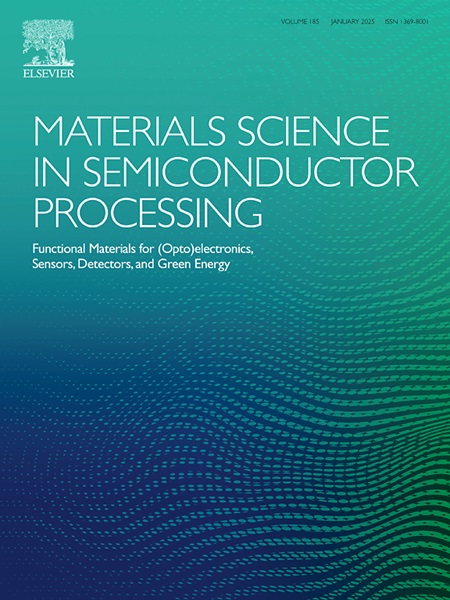Degradation mechanisms of p-GaN gate AlGaN/GaN high electron mobility transistors under power cycling tests
IF 4.2
3区 工程技术
Q2 ENGINEERING, ELECTRICAL & ELECTRONIC
引用次数: 0
Abstract
In this study, the degradation mechanisms of p-GaN gate AlGaN/GaN high electron mobility transistors (HEMTs) were investigated under power cycling tests (PCTs). The saturation drain current of the p-GaN gate AlGaN/GaN HEMTs decreased and the threshold voltage shifted positively after the PCTs. In addition, we find that not only the thermal resistance of the packaging layers, but also the thermal resistance of the chip in all the p-GaN gate AlGaN/GaN HEMTs increased after the PCTs. By using deep-level transient spectroscopy (DLTS), we find that the concentration of electron traps increased after the PCTs, which may increase the phonon scattering, and the thermal resistance of the chip accordingly. In addition, the electron trapping will deplete the electrons in the two-dimensional electron gas, resulting in the decrease of the saturation drain current and the positive shift of the threshold voltage. These results provide new insights to further improve the long-term reliability of p-GaN gate AlGaN/GaN HEMTs.
功率循环试验下p-GaN栅极AlGaN/GaN高电子迁移率晶体管的降解机理
本研究在功率循环测试(PCTs)下研究了p-GaN栅极AlGaN/GaN高电子迁移率晶体管(HEMTs)的降解机理。p-GaN栅极AlGaN/GaN hemt的饱和漏极电流减小,阈值电压正向移动。此外,我们发现,在pct之后,不仅封装层的热阻增加,而且所有p-GaN栅极AlGaN/GaN hemt中的芯片的热阻也增加了。利用深能级瞬态光谱(deep-level transient spectroscopy, dts)分析发现,PCTs后电子阱的浓度增加,这可能会增加声子散射,从而增加芯片的热阻。此外,电子捕获将耗尽二维电子气体中的电子,导致饱和漏极电流降低,阈值电压正移。这些结果为进一步提高p-GaN栅极AlGaN/GaN hemt的长期可靠性提供了新的见解。
本文章由计算机程序翻译,如有差异,请以英文原文为准。
求助全文
约1分钟内获得全文
求助全文
来源期刊

Materials Science in Semiconductor Processing
工程技术-材料科学:综合
CiteScore
8.00
自引率
4.90%
发文量
780
审稿时长
42 days
期刊介绍:
Materials Science in Semiconductor Processing provides a unique forum for the discussion of novel processing, applications and theoretical studies of functional materials and devices for (opto)electronics, sensors, detectors, biotechnology and green energy.
Each issue will aim to provide a snapshot of current insights, new achievements, breakthroughs and future trends in such diverse fields as microelectronics, energy conversion and storage, communications, biotechnology, (photo)catalysis, nano- and thin-film technology, hybrid and composite materials, chemical processing, vapor-phase deposition, device fabrication, and modelling, which are the backbone of advanced semiconductor processing and applications.
Coverage will include: advanced lithography for submicron devices; etching and related topics; ion implantation; damage evolution and related issues; plasma and thermal CVD; rapid thermal processing; advanced metallization and interconnect schemes; thin dielectric layers, oxidation; sol-gel processing; chemical bath and (electro)chemical deposition; compound semiconductor processing; new non-oxide materials and their applications; (macro)molecular and hybrid materials; molecular dynamics, ab-initio methods, Monte Carlo, etc.; new materials and processes for discrete and integrated circuits; magnetic materials and spintronics; heterostructures and quantum devices; engineering of the electrical and optical properties of semiconductors; crystal growth mechanisms; reliability, defect density, intrinsic impurities and defects.
 求助内容:
求助内容: 应助结果提醒方式:
应助结果提醒方式:


